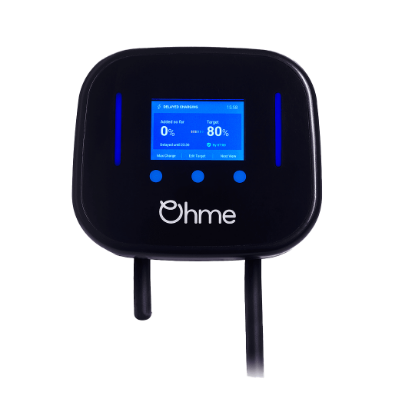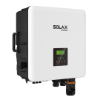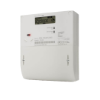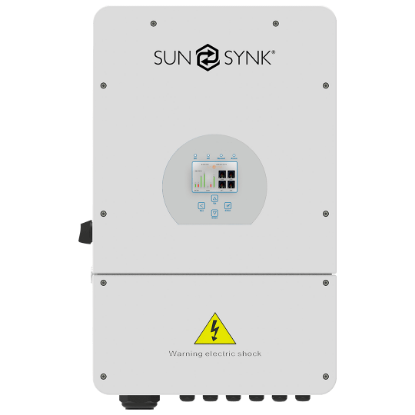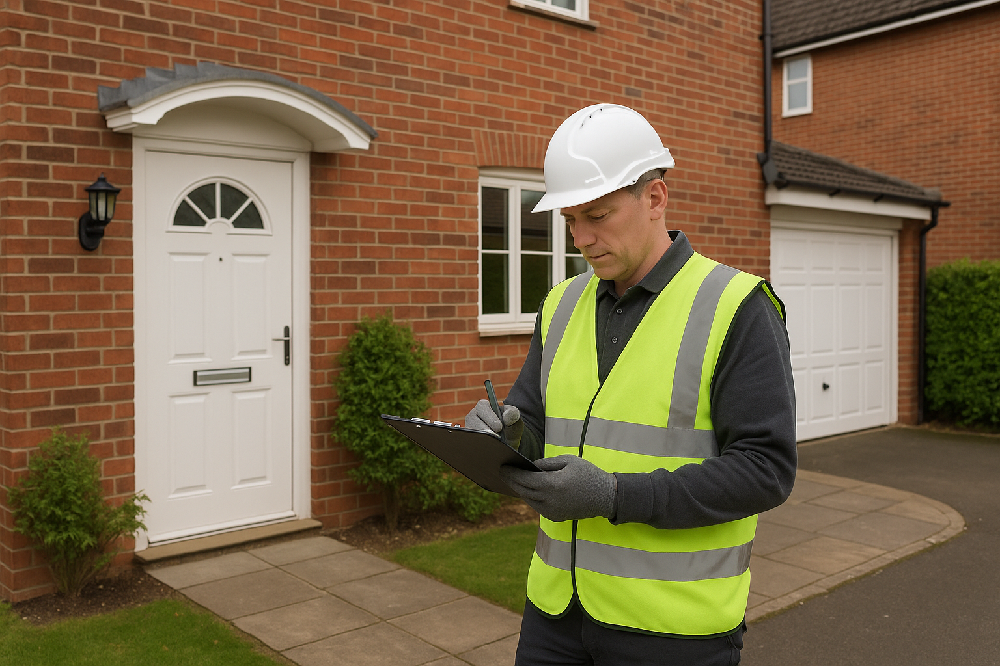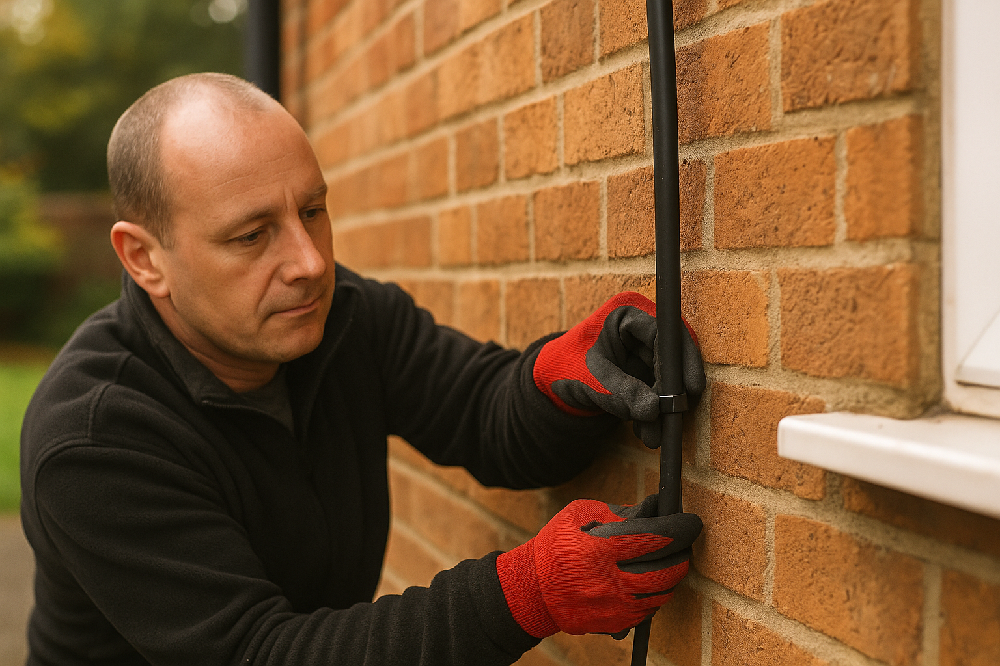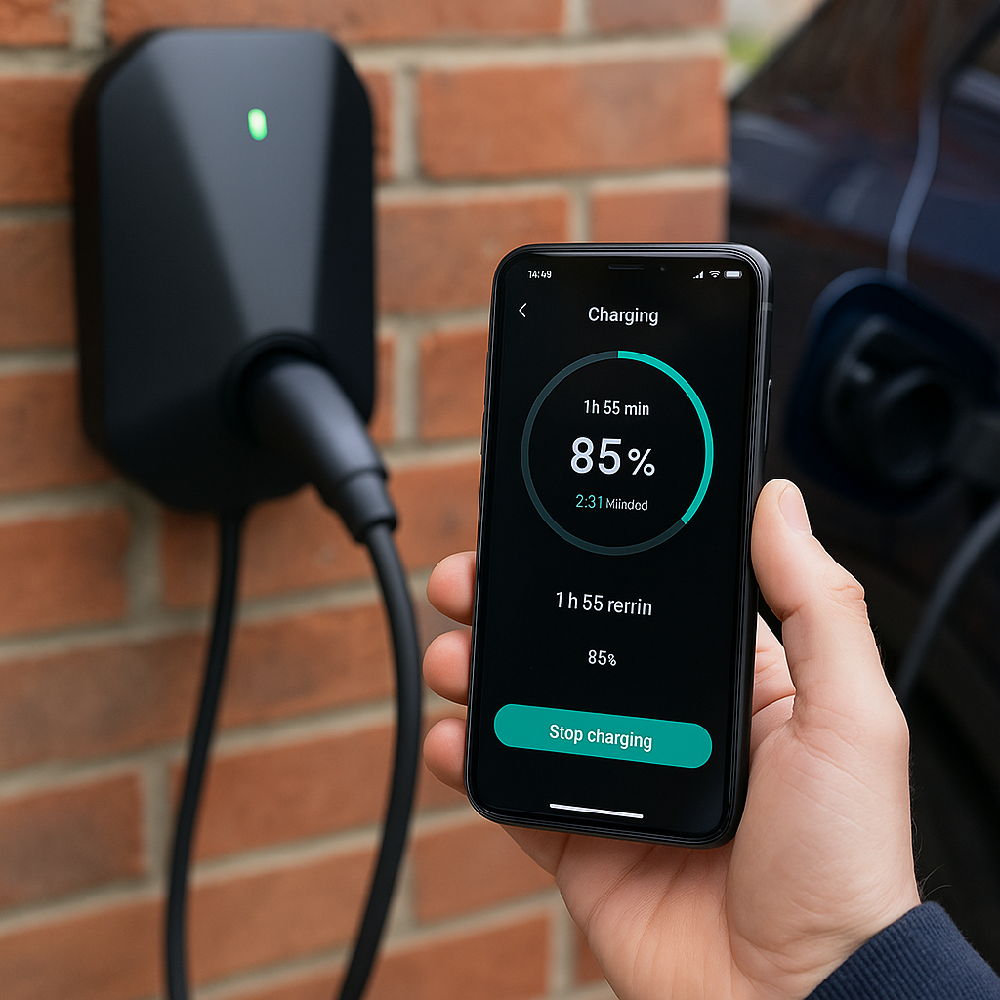Electric vehicles (EVs) are becoming a familiar sight on UK roads, and for many drivers, installing a home EV charger is the most convenient and cost-effective way to keep their car powered. Charging at home is usually cheaper than relying on public networks, but understanding the total cost of EV charger installation in the UK is key when planning your switch to electric.
In this guide, we’ll break down:
EV charger prices
Installation costs
Additional charges to look out for
Example installation scenarios
Smart charging benefits and energy savings
Grant options still available in 2025
Why professional installation matters
We’ll also recommend EV chargers that are available from Evergy today and link to helpful resources including our Best Home EV Chargers UK June 2025 and Best EV Tariffs UK 2025 guides.
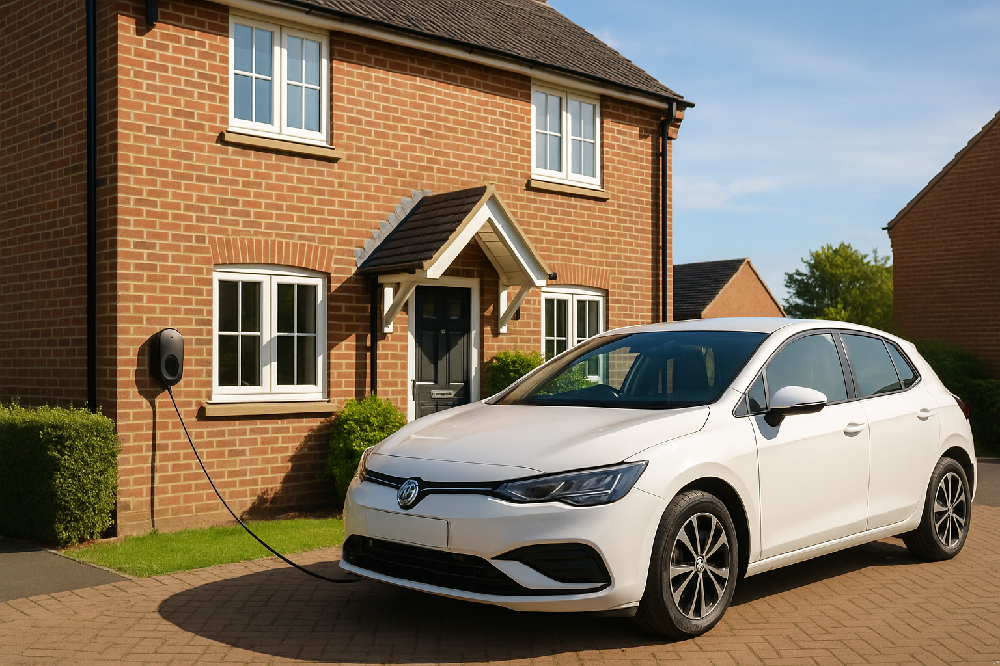
How Much Does an EV Charger Cost?
When budgeting for a home EV charger installation, the first thing to consider is the cost of the charger itself. Prices vary depending on the model, features, and whether you choose a tethered or untethered unit. Below, we explore the typical price ranges for popular EV chargers available from Evergy.
EV Charger Price Ranges (2025)
Entry-Level Chargers
If you’re looking for a simple, affordable option, the Ohme ePod is a great starting point.
Typical price: £500–£700
Features: Compact design, smart charging, compatible with off-peak energy tariffs
Best for: Drivers who want a cost-effective charger that works with flexible energy rates
Mid-Range Chargers
The Easee One is one of the most popular home EV chargers in the UK.
Typical price: £800–£1,200
Features: App control, built-in Wi-Fi, smart load balancing
Best for: Everyday home use with a great mix of features and flexibility
Premium Chargers
If you’re after something with a more stylish finish, the Andersen A2 and Andersen Quartz offer bespoke design and premium build quality.
Typical price: £1,500+
Features: Hidden cable storage, wide range of custom colours and finishes, solar integration compatibility
Best for: Drivers who want their charger to match their home and value aesthetics as well as performance
Tethered vs. Untethered EV Chargers
One of the biggest decisions you’ll make when choosing an EV charger is whether to go for a tethered or untethered unit.
Tethered chargers
These have a charging cable permanently attached. They’re simple to use because you don’t need to unpack your own cable every time you charge. Tethered units are often slightly more expensive but are favoured for everyday convenience.Untethered chargers
These require you to use your own Type 2 charging cable. They offer a cleaner, more discreet look and make it easier to switch between different cable lengths. Untethered chargers are often the preferred choice for drivers wanting a tidy installation.
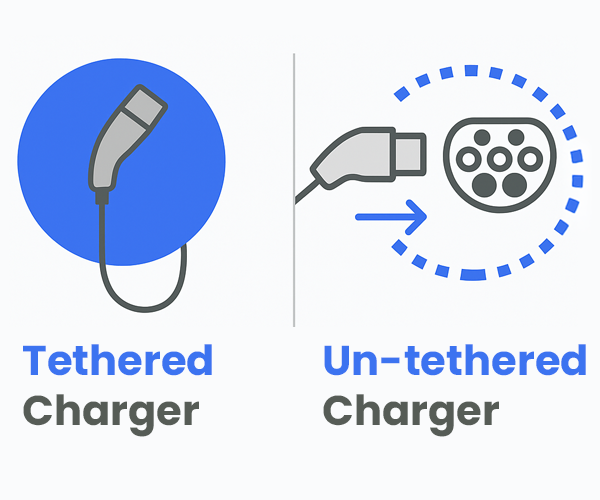
How Much Does EV Charger Installation Cost?
Alongside the cost of the charger itself, you’ll need to budget for professional installation. Installation costs can vary depending on your home’s layout, the location of your consumer unit, and whether any additional work is required.
Standard Installation Costs
For most homes, a standard EV charger installation typically costs between £300 and £700. This price usually includes:
Up to 10 metres of cabling from your consumer unit to the charger
Fitting and mounting of the charger
Connection to your existing electrical supply
Basic drilling and containment work
Standard safety checks and commissioning
Most professional installers will provide a fixed quote for standard installations, which is often the most straightforward option for homes with a driveway or garage close to the consumer unit.
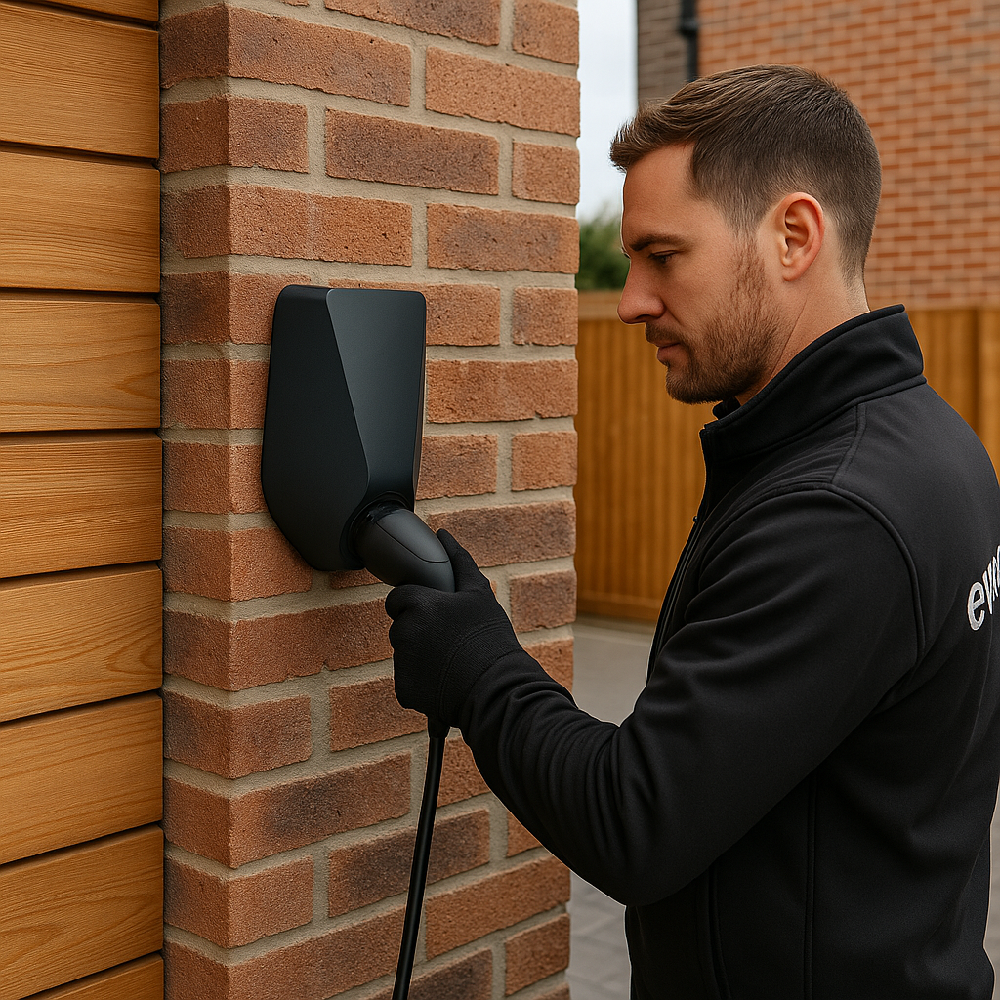
Additional Installation Costs
Some homes may require extra work, which can increase the total installation price. Additional costs may apply if:
You need more than 10 metres of cabling
The installation involves trenching or groundworks
Your consumer unit needs upgrading or you require a dedicated circuit
Load management or surge protection devices are recommended
Earth rods or PME (Protective Multiple Earthing) solutions are needed for safety compliance
It’s always worth discussing your home’s layout with your installer early on to avoid unexpected costs.
What Affects EV Charger Installation Costs?
When planning your home EV charger installation, several factors can influence the final price. Understanding these variables can help you avoid unexpected costs and get an accurate quote.
Distance from Consumer Unit
The further your charger is from your fuse box, the more cabling and labour are required.
Cable Routing Complexity
Installing cable through walls, underground, or around obstacles can increase the cost.
Consumer Unit Capacity
If your fuse box is outdated or full, you may need additional upgrades or load management devices.
Surface Type and Mounting Location
Brick, render, or wooden walls may have different fitting requirements. Ground-mounted chargers typically cost more.
Additional Safety Requirements
Some installations may require earth rods or surge protection for compliance with the latest regulations.
Smart Features and Connectivity
Adding solar integration or complex load balancing might increase the installation time and complexity.
The EV Charger Installation Process
Knowing what to expect on installation day can make the process smoother and more predictable. Here’s a simple step-by-step guide to how a typical home EV charger installation works in the UK.
Site Survey and Preparation
Before installation, your chosen installer will usually carry out a site survey, either in person or virtually. They’ll assess:
The distance from your consumer unit to the charger location
The condition and capacity of your existing electrical system
Any additional works required, such as groundworks or cable containment
Earthing arrangements and overall safety requirements
The survey ensures the installation meets UK safety regulations and helps the installer prepare an accurate quote.
Cabling and Fitting
On the installation day, your electrician will:
Safely isolate the power supply
Run the cabling from your consumer unit to the charger location
Mount the charger to the wall
Connect the wiring and install any necessary safety devices like circuit breakers or surge protectors
If extra works such as ground trenching are needed, this will typically extend the installation time.
Safety Checks and Commissioning
Once the charger is installed, the electrician will:
Perform full safety checks
Commission the charger according to manufacturer instructions
Demonstrate how to use the charger and its smart features
Provide you with a handover pack and installation certificate for your records
A professional installation ensures your charger is compliant with UK electrical standards and keeps your manufacturer’s warranty valid.
How Much Does It Cost to Charge an EV at Home?
Once your home charger is installed, the day-to-day running costs are typically much cheaper than using public charging points or refuelling a petrol or diesel car. But how much does it actually cost to charge an EV at home in the UK?
Typical Home Charging Costs
The cost to fully charge an EV at home depends on your electricity tariff and your vehicle’s battery size.
As a rough guide:
Charging a 64 kWh battery (typical of many family EVs) costs around £17.50 on a standard energy tariff
Charging the same vehicle overnight on an off-peak EV tariff can cost as little as £4.50
If you’re using a smart charger, you can easily schedule charging to take advantage of cheaper, overnight electricity rates.
Save More with the Best EV Tariffs
Smart EV tariffs offer some of the biggest savings when charging at home. Some UK suppliers now offer off-peak rates as low as 7.5p per kWh during overnight charging windows.
We recommend comparing the best tariffs to maximise your savings.
Check out our guide to the Best EV Tariffs UK 2025 for the latest deals and supplier options.
Smart Charging Features and Future-Proofing
When investing in a home EV charger, it’s worth considering smart charging features that can save you money and help future-proof your setup.
App Control and Smart Load Balancing
Many modern chargers, including the Easee One and Ohme ePod, come with smart apps that let you:
Start, stop, and schedule charging sessions remotely
Track energy usage and charging history
Set charging times to align with cheaper electricity rates
Balance energy loads to prevent overloading your home’s electrical system
These features give you complete control over your home charging and make it easier to manage your energy costs.
Solar Panel Compatibility
Some premium chargers, like the Andersen A2, offer solar charging compatibility. This allows you to:
Prioritise solar-generated power for charging
Reduce reliance on grid electricity
Maximise the benefit of your solar panel system
If you’re considering solar panels in the future, choosing a solar-ready charger now can help you stay ahead.
Tariff Integration with Octopus Intelligent Go
Smart chargers like the Easee One and Ohme ePod work seamlessly with Octopus Intelligent Go, one of the most competitive EV tariffs on the market.
With this tariff, your charger can automatically schedule charging during the cheapest available hours, helping you significantly cut charging costs.
For more guidance on choosing the right charger, explore our Best Home EV Chargers UK June 2025 guide.
Are EV Charger Grants Still Available in 2025?
Although the OZEV grant for homeowners in single-unit houses ended in 2022, some EV charger grants are still available in 2025 for specific situations. Understanding whether you qualify can help reduce your total installation costs.
EV Charger Grants for Flats and Rented Homes
If you live in a flat or a rental property, you may still be eligible for an EV charger grant through the Office for Zero Emission Vehicles (OZEV).
This grant can cover up to 75% of the cost of a home charger, capped at £350 per installation.
Eligibility typically requires:
Living in a flat or rented accommodation
Having dedicated off-street parking
Using an OZEV-approved installer
These grants can make a significant difference to the overall cost, especially for entry-level and mid-range charger installations.
Workplace Charging Scheme
If you’re a business owner, you might also benefit from the Workplace Charging Scheme (WCS), which provides financial support for installing EV charge points at business premises.
The WCS can:
Fund up to 75% of the installation cost per socket
Allow up to 40 sockets per business location
Help lower installation costs for office car parks, warehouses, and fleet depots
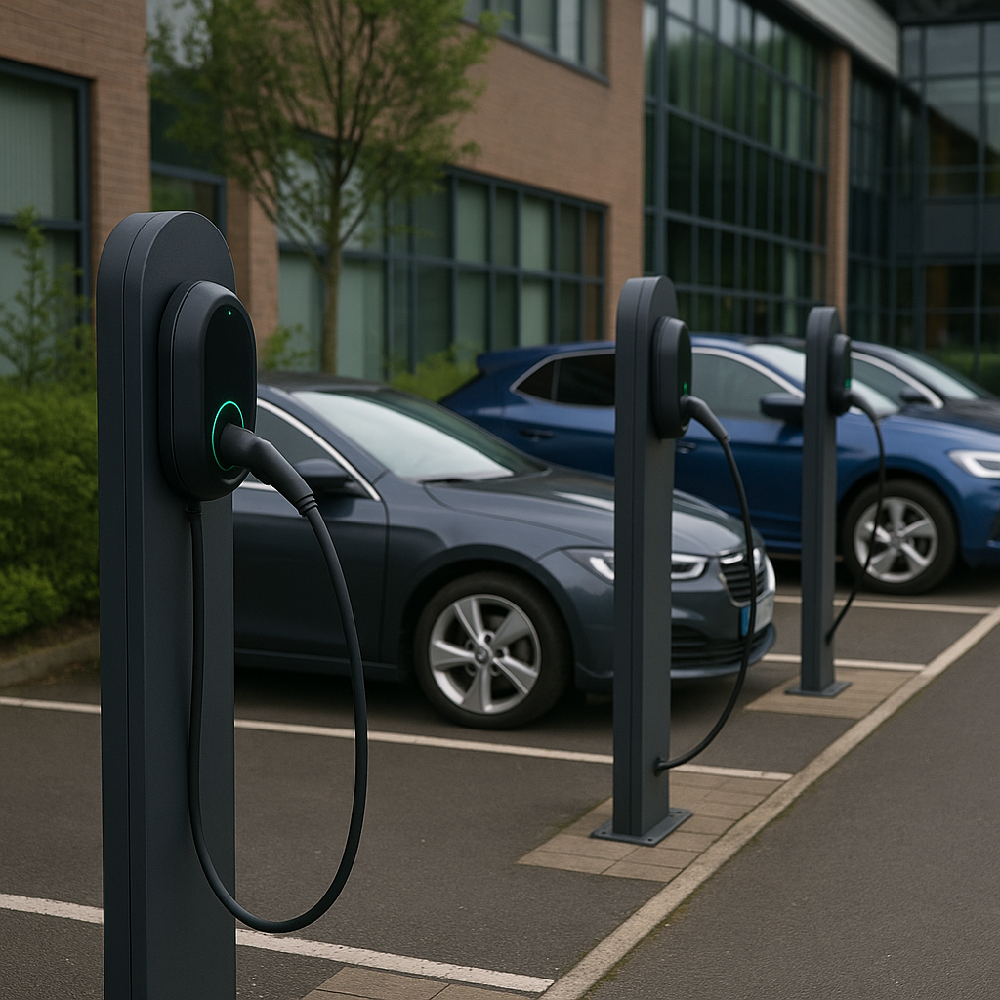
Check for Local Incentives
Some councils and energy providers offer local incentives or discounts for home charger installations. It’s worth checking with your local authority or energy supplier to see if any additional schemes are available in your area.
Why Professional Installation is Essential
When it comes to EV chargers, professional installation is not optional, it’s essential. Not only is it a legal requirement, but it also protects you, your home, and your vehicle.
Safety and Compliance
EV charger installations must comply with UK electrical safety standards and building regulations.
Qualified installers will:
Assess your home’s electrical capacity
Install circuit protection and load management where required
Ensure proper earthing to prevent electrical faults
Provide certification to confirm the installation meets legal standards
Cutting corners with an unqualified installer or DIY fitting can create serious safety risks, including electric shock, fire hazards, and invalidation of your charger’s warranty.
Manufacturer Warranty Protection
Most leading EV charger brands, including Easee, Ohme, and Andersen, require professional installation to honour their warranties.
A compliant installation protects your investment and ensures you can rely on manufacturer support if you ever experience a fault.
Evergy's Trusted Installer Network
At Evergy, we don’t just supply EV chargers, we also help you connect with trusted local installers who understand your specific charger, your energy tariff, and UK safety requirements.
We’re committed to helping you get the right charger at the right price, with the confidence that it’s been installed correctly.
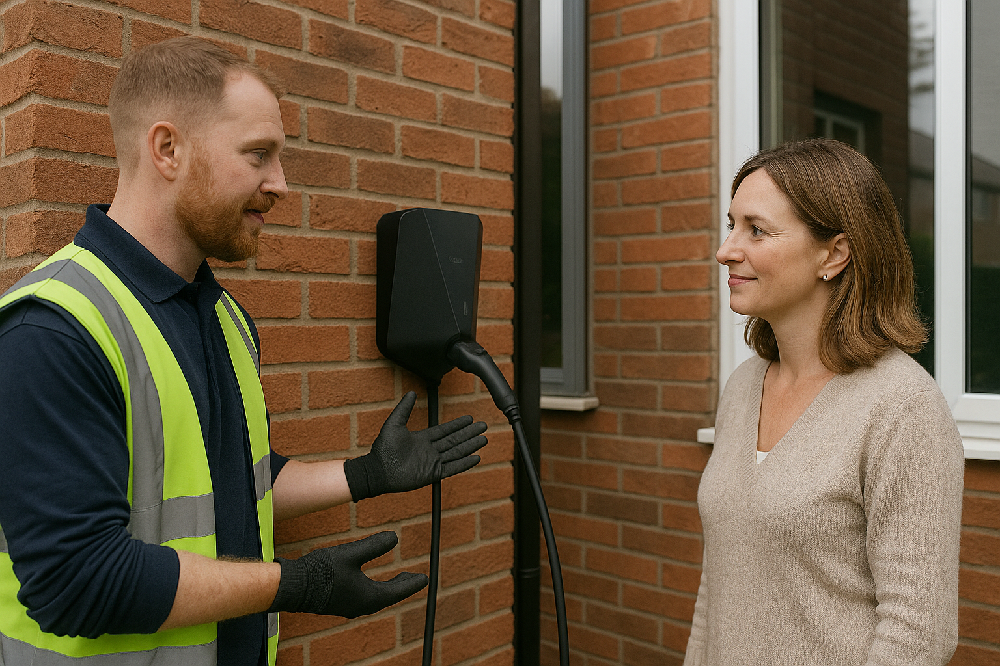
The cost to install an EV charger at home in the UK typically ranges from around £950 to £2,200, depending on the charger you choose and the complexity of the installation. While there are cheaper public charging options available, home charging offers unbeatable convenience and long-term savings, especially when paired with smart tariffs and off-peak charging.
By choosing a smart EV charger like the Ohme ePod, Easee One, or Andersen A2 from Evergy, you can:
Lower your charging costs
Benefit from smart scheduling and app control
Future-proof your home for solar compatibility and energy optimisation
If you live in a flat or rental property, you may still be eligible for an OZEV grant to reduce your installation cost.
To get started, explore our Best Home EV Chargers UK June 2025 for detailed charger comparisons, or check out our Best EV Tariffs UK 2025 to make the most of your home charging setup.
Ready to charge smarter?
Contact Evergy today to find your perfect EV charger and get connected with a trusted installer.









